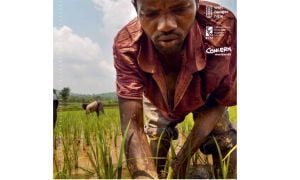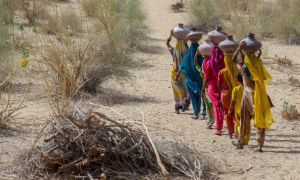
Read our 2024 annual report

Knowledge Hub
Global Hunger Index 2016 report
This is the eleventh annual publication of the Global Hunger Index (GHI), a report jointly published by the International Food Policy Research Institute (IFPRI), Concern Worldwide, and Welthungerhilfe (WHH).

The GHI series of reports tracks the state of hunger – worldwide and country by country – and spotlights those regions and countries where action to address hunger is most urgently needed.
This year’s report shows that the level of hunger in the developing world has declined by 29 percent since 2000. Despite this progress, the level of hunger globally remains distressingly high, with 795 million people still facing hunger, roughly one in four children affected by stunting, and eight percent of children affected by wasting.
Getting to zero hunger
In this year’s essay, the UN’s David Nabarro discusses the 2030 Agenda for Sustainable Development and how we can achieve its core objective: to overcome poverty and hunger and reach those who have been left behind.
A lasting end to hunger and undernutrition cannot be achieved in isolation, he argues. We must also address the underlying structural causes of hunger, including the impact of climate change, particularly on the poorest.
We must also identify the regions, countries, and populations that are most vulnerable to hunger and undernutrition so that progress can be accelerated there. This is where the Global Hunger Index has a massive role to play.
Case studies
This year’s case studies highlight the work of Concern Worldwide and Welthungerhilfe as part of efforts towards achieving zero hunger in three very different countries: India, Malawi and Burundi. They focus on the complex challenges faced and the progress made so far, and demonstrate how lessons are being learned along the way.




